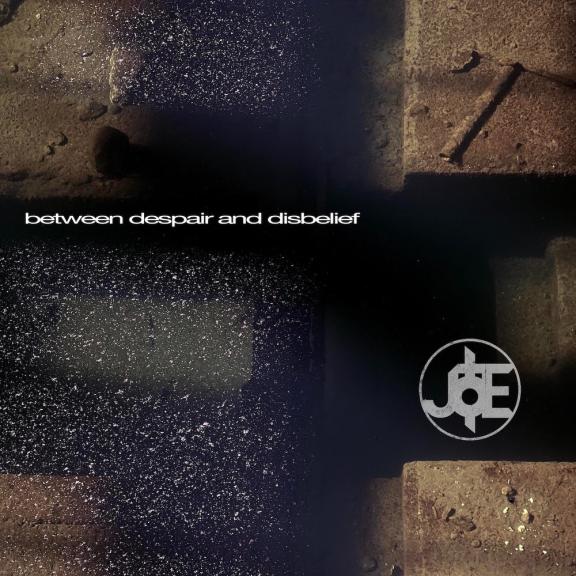Jesus on Extasy's comeback was no easy feat. After leaving the band in 2011, singer Dorian Deveraux left his brother Chai alone at the helm of a project that ultimately disappeared in 2014... For good? Dorian resurfaced in 2020 with FTANNG (review), but above all, Jesus On Extasy was supposed to tour with KMFDM in 2022, heralding an imminent return to action! Except that in the meantime, a pandemic caused the tour to be canceled and postponed a comeback that we were still hoping for in 2023 with the release of the single Wide Awake... In the end, we had to wait a little longer for Jesus on Extasy, now led by Dorian without his brother, to finally release Between Despair and Disbelief. It “only” took a few traumatic events (a painful breakup, a pandemic, etc.) to get them back on track!
Given the context surrounding the release of this new album, it comes as no surprise that the industrial rock band has taken a heavier approach. Ghosts sets the scene with restraint: a melancholic introduction that leaves threatening clouds hanging without letting them fully explode, this first track plunges us into a world that is falling apart, an intimate apocalypse to which Dorian Deveraux lends his sensitive and sincere vocals, whereas the German industrial rock and metal scene often tends to overplay deep, martial voices or theatrical excesses. Here, it's all about nuance, between a poisonous groove and torments dissected by machines.
The comparison cannot wait any longer: obviously, Jesus on Extasy listened to Nine Inch Nails. If you've ever heard the song Suck, you know where their name comes from... and even the artwork for Between Despair and Disbelief echoes the mysterious abstract textures of Trent Reznor's band's album covers, evocative of unsanitary ruins! This is reflected in the music, with its raw tone, raw emotions, and emphasis on the organic and personal, while the biting guitars are accompanied by colder, more modern synths. Jesus on Extasy has gained in intensity but is also danceable, combining obvious 90s references (we can also sometimes guess the shadow of Marilyn Manson in the vocals of Days Gone By or the gloomy A Hard Goodbye, for example, with its ghostly piano and delectable atmosphere) with a more modern, catchy, head-on approach. While this album is haunted by a tormented soul, it is nonetheless a succession of immediately catchy tracks.
Throughout the album, Jesus On Extasy seems to play with our nerves, regularly teasing despair and ultimately delivering a few cathartic explosions of rage. When they occur, with the hard-hitting choruses of the singles Soul Crusher and Somewhat Happy and its apocalyptic drums, the band reveals a previously unseen viciousness: we danced, we lamented in our corner, but now we're getting our teeth knocked out. Each passage works all the better because Jesus On Extasy varies the pleasures and allows for moments of respite within its songs, as in Something Far Away, whose hushed darkness explodes into a hopeful chorus with bittersweet pop accents.
In this highly sensitive blend of introspective laments, spectral electronics, and relentless riffs, Jesus On Extasy sometimes reminds us of the work of French artist Kloahk, another heir to Reznor, Numan, and company, who also masters this unique combination of poetry, intimacy, and irresistible formulas. The machines are at the service of emotions, with the spirit imposing itself on the mechanics. In this respect, the album's conclusion, Will It Ever Stop, is a masterful synthesis that once again seems to draw on NIN and The Background World, the best track composed by Reznor in the last twenty years or so, giving Between Despair and Disbelief a grand finale, a whirlwind of textures and emotions.
Jesus on Extasy manages to keep us on a constant edge, creating tension at every moment, a constant threat to fluctuating energies. It's also an album for feeling good by feeling bad, reopening old wounds that haven't yet healed and letting yourself be carried away by your destructive impulses. We dance to our failures, our vanity, and our inevitable end. It's no coincidence that the track that gives the album its title serves as an introduction to The End of Everything, another unstoppable chorus and a surprising solo that dies away in Deveraux's seductive and disturbing whispers: the world is coming to an end, but let's see this timely return of Jesus On Extasy as a positive side effect... unless we need to reverse the causal link between the two!





